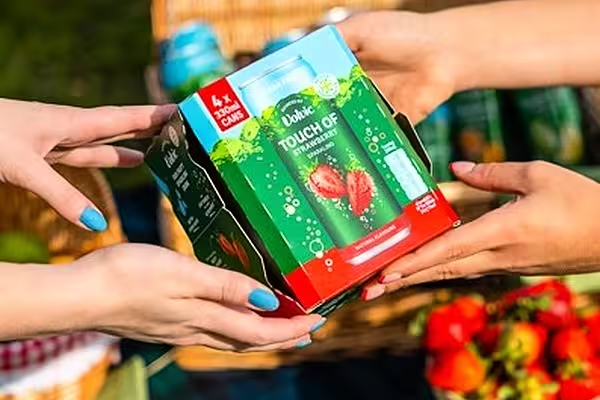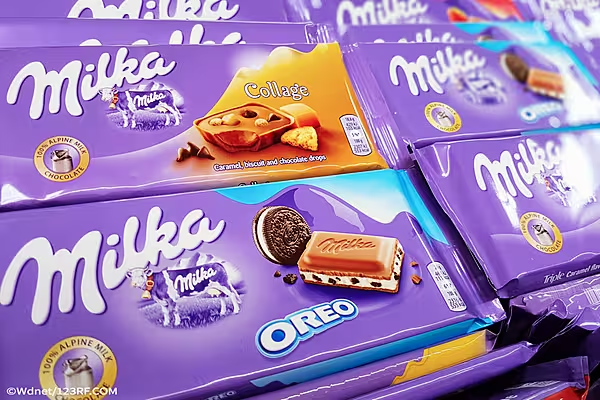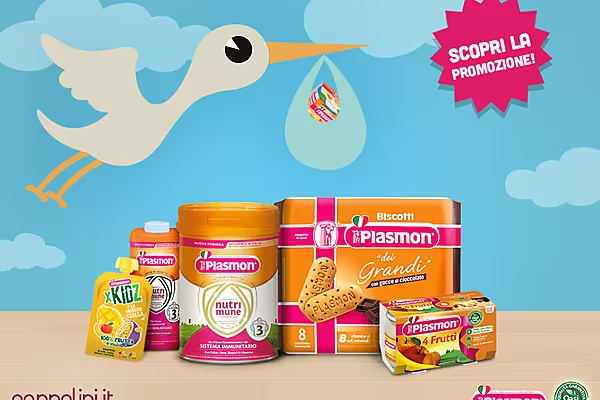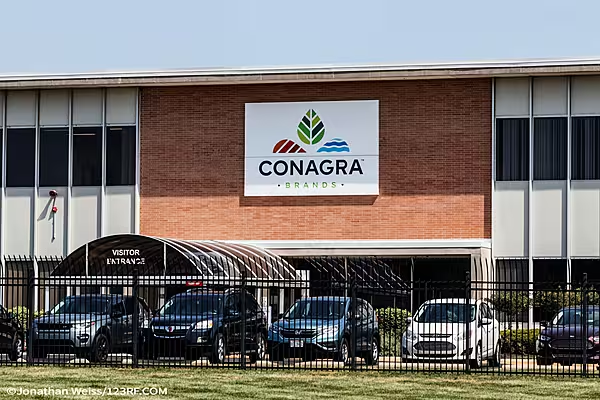While tea and coffee experienced an increase in demand in the grocery retail sector during the lockdowns of 2020 and 2021, supply chain issues and inflation may now be a cause for concern. Donna Ahern reports.
When Covid-19 restrictions were introduced in Ireland back in 2020, all segments of the hot beverages category in-store, which includes instant coffee, fresh ground coffee pods and tea, experienced an increase in demand, as customers stockpiled goods.
As the roll-over lockdowns impacted shopping habits to the end of 2021, retailers and manufacturers within this category reaped the benefits from the increase in sales of tea and coffee products in the grocery retail sector.
In fact, research shows that sales of coffee in grocery retail continued to see healthy growth in volume and value terms in Ireland in 2021.
According to the latest Euromonitor data, which was published in January of this year, this growth continued to be driven by strong growth in fresh coffee, organic coffee, and fresh ground coffee pods.
The Euromonitor research showed that many households continued to depend on hot drinks bought in- store in 2021, which created greater competition and encouraged new product development within the different categories.
For example, Nescafé launched organic and hand-picked Sumatran instant coffee to compete with the growing range of fresh and organic coffee products on the market.
Shopping Local
The Euromonitor research also revealed that consumers continued to shop locally, especially during the first half of 2021, contributing to more hot drinks being sold in convenience stores and supermarkets.
In sharp contrast, hypermarkets continued to struggle, with these stores typically located further away from consumers’ homes.
‘More Educated Tastes’
When it comes to coffee, it appears that brewers are constantly going back to the drawing board to create more innovative flavours to satisfy consumers ever more discerning palettes.
“Coffee drinkers these days know their stuff,” said Wojciech Tysler, a finalist in last year’s World Barista Championship in Milan.
“People’s tastes are now more educated and they are demanding better.”
Tysler is part of the Bewley’s team who brought its Fiesta of Flavour to Electric Picnic in Stradbally in September, which was inspired by the flavours of South America and the origin of the coffee beans.
Earlier this year, Bewley’s became the official coffee partner at Electric Picnic after agreeing a new three-year deal with Live Nation, the company behind both festivals.
“Coffee has been the surprise festival hit since people returned to big music gatherings this year, and we gave people a really great experience at Electric Picnic with a varied range of different recipes and creations,” said the top barista, who moved to Ireland from southern Poland 16 years ago.
The coffee on offer at Electric Picnic last year was a single-origin Columbian, which he described as “a light roast with a very bright and zesty flavour, with hints of lemon and apricot. It is exactly what the new generation of coffee drinkers are wanting now.”
It is likely that Ireland’s coffee culture will see further innovation via new product developments in the coming months.
A Nation Of Tea Drinkers
Despite the growing popularity of coffee in Ireland over the past decade, we remain a country of tea drinkers.
However, like most other food and drink categories, the tea category has evolved to meet changing consumer demands, and one of the most significant trends during the lockdown and working from home period was the increasing popularity of black and decaffeinated teas.
Demand for black tea remained steady throughout the lockdowns of 2020 and 2021, and its popularity has continued since the reopening of the foodservice industry.
Black tea sales saw a retail value growth of 1% in 2021 and are experiencing current volume growth of 3% (Euromonitor, Tea in Ireland January 2022), while decaffeinated tea is one of the fastest growing segments of the tea market
Drinking four more cups of tea per day could lower the risk of type 2 diabetes, research suggests. A study found that drinking black, green or oolong tea every day was linked to a 17% lower risk of diabetes over an average of 10 years.
Drinking between one and three cups a day cut the risk by 4%.
The findings, presented at the European Association for the Study of Diabetes in Stockholm, are based on a review of 19 studies involving more than one million people.
Lead author Xiaying Li, from Wuhan University of Science and Technology in China, said, “Our results are exciting because they suggest that people can do something as simple as drinking four cups of tea a day to potentially lessen their risk of developing type 2 diabetes.”
Previous research has found that tea could be beneficial for health, partly because it contains antioxidants and polyphenols, which may protect against disease.
However, to reduce the risk of type 2 diabetes, experts agree that people should primarily keep their weight in check.
Obesity is a major driver of type 2 diabetes, accounting for 80% to 85% of the risk of developing the condition.
Obese people are thought to be up to 80 times more likely to develop type 2 diabetes than those with a body mass index of under 22.
In the new study in China, researchers first looked at data from 5,199 adults in the China Health and Nutrition Survey who did not have diabetes, who were recruited in 1997 and followed until 2009.
People filled in a food and drink frequency questionnaire and provided information on lifestyle factors such as regular exercise, smoking and alcohol consumption.
This study found no benefit from drinking tea on the risk of diabetes.
But when researchers did a systematic review of existing studies up to September 2021 from eight countries, the findings were different.
This analysis suggested that each cup of tea per day reduced the risk of developing type 2 diabetes by around one per cent. The findings held true regardless of what type of tea people drank, whether they were male or female, and regardless of where they lived.
Xiaying Li said tea was shown to reduce risk, but only when drunk in fairly large quantities.
She added, “It is possible that particular components in tea, such as polyphenols, may reduce blood glucose levels, but a sufficient amount of these bioactive compounds may be needed to be effective. It may also explain why we did not find an association between tea drinking and type 2 diabetes in our cohort study, because we did not look at higher tea consumption.”
Reduced Risks
"When it comes to whether the reduced risks held true if people added milk to their tea, the authors said they had reviewed previously published literature on this issue. This showed that “dairy and dairy products were associated with a reduced risk of diabetes,” they wrote.
Naveed Sattar, professor of metabolic medicine at the University of Glasgow, said, “Given the nature of this study, it cannot prove tea prevents diabetes per se. Rather it could be that people who drink more tea avoid or less often drink more harmful sugary drinks or equivalent, or that they have other health behaviours that leads them to have lower risks of type 2 diabetes.
"There is no good trial evidence whatsoever that the chemicals in tea prevent diabetes, so I suspect it is more about tea being healthier (less calorific) than many alternative drinks, or tea drinkers leading healthier lives more generally.”
Cold Drinks On The Rise
In August of last year, coffee giant Starbucks reported that cold beverages accounted for 75% of its drink sales from April through June, which the company attributed in large part to the popularity of iced drinks among its Gen Z customers.
According to the New York Times, while it might come as no surprise that customers at Starbucks are choosing mostly iced drinks during warmer months, cold beverages have accounted for at least 60% of the coffee giant’s beverage sales every quarter – including the winter months – since April of 2021.
Closer to home, we have seen an increased number of cold coffees in-store, such as Nescafé Azero Nitro and Frank and Honest’s Cold Brew, to name but a few.
The same applies to iced-tea, with a number of new products such as Fuzetea, for example, making their way onto supermarket shelves in recent years.
Indeed, if the upward trajectory in sales of cold versions of our favourite hot brews accounts for such a high portion of Starbucks sales in the US last year, the manufacturers of hot beverages, in both the grocery retail and foodservice sectors, may have reason to be concerned.
War And Inflation
Retail sales accounted for the largest share of volume and value sales of hot drinks in Ireland in 2021, with foodservice sales a long way behind, according to the Euromonitor report published in January 2022.
Of course, a lot has happened since this report was published. Since Russia began its attack on Ukraine on 24 February 2022, exports of key commodities across the globe have been severely hit within this market. It was widely reported that coffee traders were scrambling to redirect shipments of coffee beans, and supply chain woes and inflation has added further fuel to the fire.
Looking Ahead
Given that the foodservice sector has been operating close to pre-pandemic levels, with people out and about more, we can expect to see a drop in consumption in the hot beverages category in the grocery retail sector in the coming months.
Also, the combined effect of the war and very high coffee prices will likely lead to a drop in demand.
On the upside, the re-opening of all foodservice outlets following the lockdown period should have a big impact on foodservice sales within the category in 2022, causing a significant increase in sales of tea, coffee and other hot beverages in many in-store cafés and coffee docks throughout the country.
© 2023 Checkout – your source for the latest Irish retail news. Article by Donna Ahern. For more A-brand news, click here. Click sign up to subscribe to Checkout.









